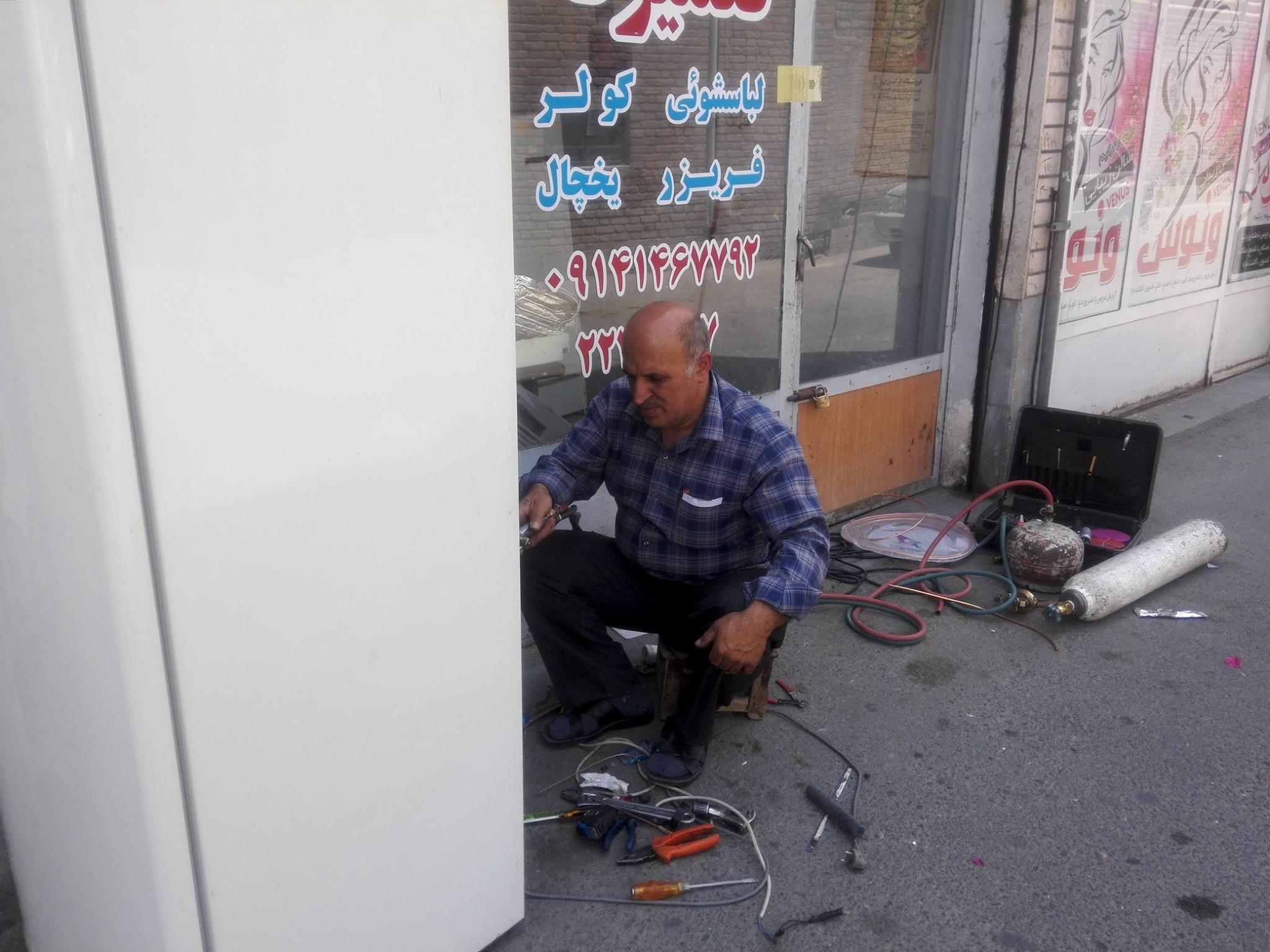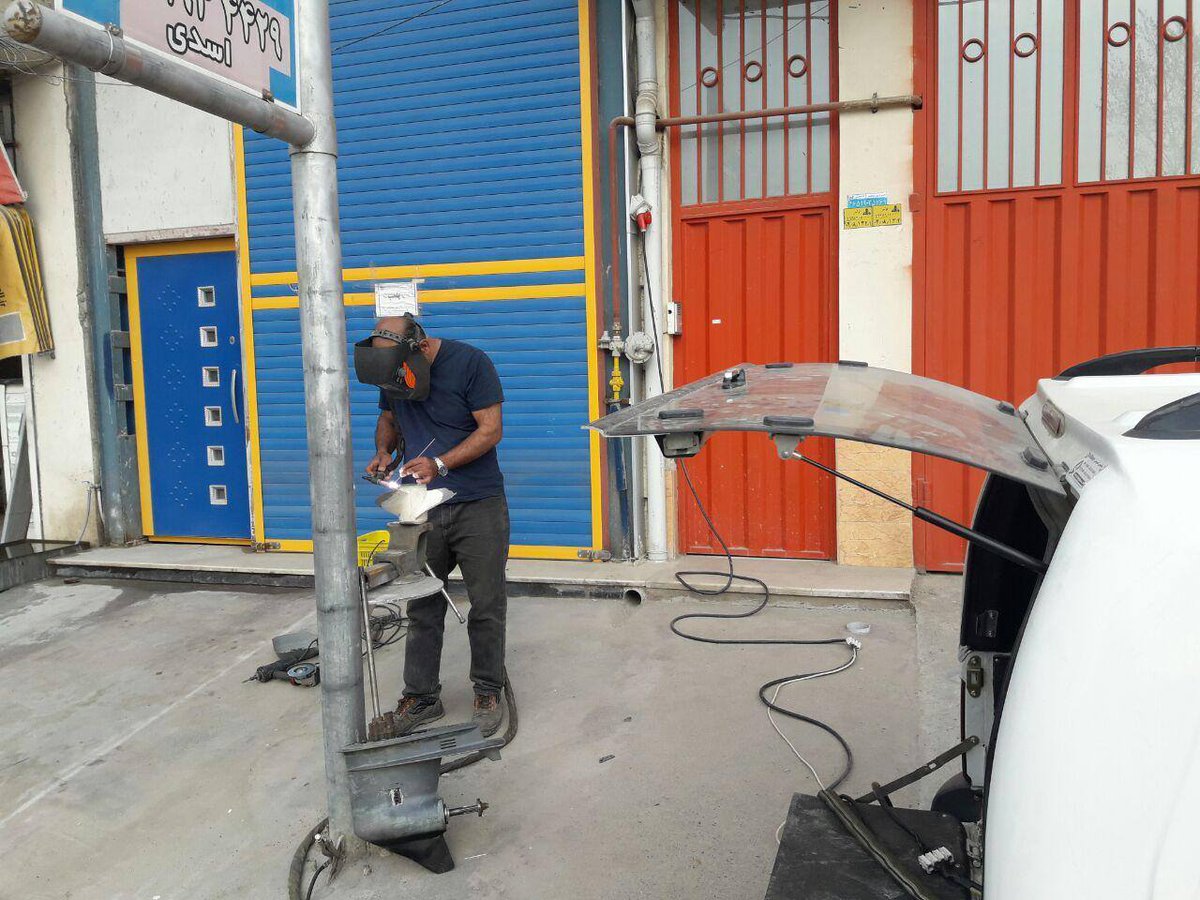Source: medium.com
It has been only one hundred and seventy some-odd years since Muslim clergy in Iran used to incite their followers at the mosque to attack Babis and Baha’is, raid their homes and kill whomever they found. This kind of behavior from Shi’ite Muslim clergy is nothing new, and most Iranian Bahia’s are very familiar with it, as it has happened in recent years too.
I remember when my paternal grandfather told me the story of becoming a Baha’i in Mahallat, Iran. He owned a handmade Persian Rug weaving shop in Mahallat. As soon as the neighbors and the town’s clergy found out, they raided his shop and burnt it to the ground. He had to walk and run 125 miles overnight to get to safety in Arak.
My maternal grandfather was much younger when he became a Baha’i. He was in the seventh grade, and had just started seminary school in order to become a mulla. He found out about the Baha’i Faith in school, and he read whatever he could find about the Baha’i Faith until he became a Baha’i. He knew well he could not go home to his family and that he could not stay in the same school. He left town and started working as an apprentice at shoe-making shops in Ashgabat, in what was then Russian Turkmenistan. Eventually, he became a master shoemaker and married a Russian-German girl with blue eyes and gray hair. With the rise of the October revolution, they were forced to leave Russia and go to Iran, where the second part of the story continued.
There are many very similar stories, but with a world of difference for each. Nowadays, even with all the modern transparency, with social media and progress in the science of communication, Muslim clergymen have not changed much at all. Since the inception of the Islamic revolution in Iran and the establishment of the Islamic Republic of Iran in 1979, hundreds of Baha’is have been terrorized, hanged, or shot to death by order of the revolutionary courts. In these courts, the first qualification for judges is not any kind of judicial education, but more than anything radical Islamic thinking and judgment. The judge and the prosecutor are usually aware of the decree before hand, and the court session does not last more than a few minutes.
A great example of the working of Iranian revolutionary courts was displayed in a video released by the BBC of the members of the second National Spiritual Assembly of Iran in 1981 (the administrative body of the Baha’is of Iran at the time). The entire video shows one individual, who sarcastically, without accepting any testimony or response from the offenders, has already made up his mind about their sentence. They had no defense lawyer and not enough time to even finish a single sentence.
The Baha’is who were not killed during the reign of Ayatollah Khomeini and subsequently Ayatollah Khamenei as Supreme Leaders lost their government jobs and their pensions, their businesses were confiscated, their homes were confiscated, they were kicked out of colleges and universities, and their bank accounts were frozen and then taken over. It seems as though the mullas learned that killing Baha’is would not help them get rid of the Baha’is, but that there are more profitable ways. Thus they started terrorizing them economically and socially. They have followed this scheme, as they think they can make them leave the country, or they think that by keeping economic pressure on the Baha’is they will denounce their Faith and become Muslim.
In the past few months hundreds of Baha’i-owned businesses and shops were sealed after the owners had closed their shops to observe Baha’i religious holidays. Baha’is have nine holidays a year on which work is prohibited. According to Article 28-B of the Labor Code, businesses are supposed to be allowed 15 days to close their shops for personal reasons. Yet they seal Baha’i-owned businesses for months and even years for closing their shops on their religious holidays. There have been incidents in which regional judiciary or government agencies have asked Baha’i business owners to sign affidavits not to close their shops during Baha’i holidays.
The Iranian Judiciary system which oversees the Revolutionary Courts and their work also manages the Human Rights Council, not as an elected government official but as an individual appointed by the Supreme leader, Ayatollah Ali Khamenei. The head of the Iranian Judiciary’s Human Rights Council, Mohammad Javad Larijani, whose brother, by the way, is the appointed head of the Judiciary, has claimed that he has answered all questions from the International Human Rights Commission in Geneva in regards to human rights violations in Iran, and that they should be satisfied with his answers. Unfortunately, he has forgotten a couple of points: one, it is not to questions from the International Human Rights Commission for which he must provide answers, but to detailed reports of all the human rights violations by the Iranian government, as well as its supporting organizations such as news agencies, TV and radio stations, none of which have stopped their daily anti-Baha’i incitement activities. Second, we do not live in medieval times: no matter how hard they try to censor the news about their efforts against Baha’is and other religious minorities by blocking social media venues, the news still reaches beyond Iranian borders.
Hrana, the Human Rights Activists News Agency in Iran, reported that a former prisoner of war has been deprived of his pension because of his religious belief. Fardin Aghsani, a Baha’i resident of Urumia who has a history of fighting eight years of war and enduring two years of captivity in Iraq; he not only has never been commended for his sacrificial services to Iran, but he also suffered arrest and several years of incarceration because of his religious beliefs. With sealing off his shop, Mr. Aghsani is now busy providing services on the sidewalk in front of his sealed shop. He is not the only one in his family with such a prejudicial punishment; his father’s shop has been sealed at the same time with no information on when they might re-open their shops.

Still, the Aghsani family are not the only targeted Baha’is who have had their shops sealed recently. According to the website of Human Rights in Iran, in October of last year, on the orders of the Mazandaran Attorney General’s Office, more than 90 Baha’i-owned businesses in Mazandaran Province were sealed by the Office of Public Property. This situation remains unchanged ten months later. Last month, the Administrative Justice Tribunal announced the closure of Baha’i businesses in Mazandaran province to be unlawful, according to Article 28-B of the Labor Code, but no action has yet been taken by the Office of Public Property regarding these businesses. This uncertainty has posed a real challenge to these Baha’is’ livelihood. For example, to provide for his family, Arastoo Asadi, a Baha’i in the city of Nowshahr, has been forced to work outdoors on the sidewalk outside his closed business, under very harsh and inadequate conditions.

In recent months, numerous reports have been published on the closure of shops and businesses of Baha’is in Iran. International institutions, including the United Nations and human rights organizations, have repeatedly published reports and complained about the situation of Baha’is in Iran: oppression, arrest, being barred from a university education and from earning a living.
So it is time to ask the head of the Iranian Judiciary’s Human Rights Council ‒ Mr. Larijani ‒ one more question. When do you think you will put an end to the economic and social oppression of the Baha’i’s in Iran, as the Head of the Iranian Human Rights Council, and become a champion by resolving this ongoing bitter story of more than 170 years of the oppression of Iranian Baha’i’s?
Leave a Reply